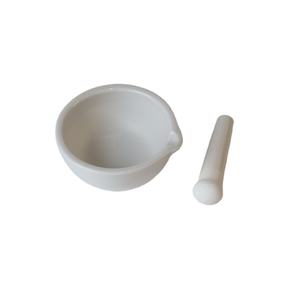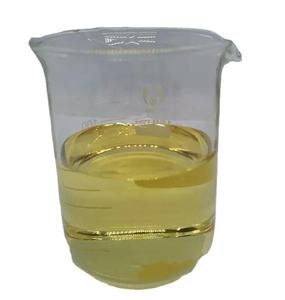Production Technology and Market Prospects of Sodium Silicate sodium silicate in bar soap

Intro
(Technical Parameters of Powdered Instant Sodium Silicate (CAS 1344-09-8))
With the growing global focus on environmental protection and lasting development, salt silicate, additionally called water glass or moisturized salt metasilicate, is getting enhancing focus in numerous industrial markets as a result of its vast array of applications. Sodium silicate plays a vital function not only in markets such as building and papermaking however likewise in detergent manufacturing. In recent years, conventional phosphate-based cleaning agent ingredients like sodium tripolyphosphate (STPP) have been terminated because of their severe effect on water high quality. Consequently, there is an immediate demand to discover efficient and eco-friendly choices. In this context, sodium silicate has actually gotten substantial attention due to its distinct efficiency benefits.
Review of Salt Silicate
Sodium silicate is a substance formed from silicon dioxide (SiO โ) and salt oxide (Na โ O), with a chemical formula normally stood for as Na โ O ยท nSiO โ. Depending upon the worth of n, it can be identified into various types. Salt silicate exhibits excellent solubility, high pH, and impressive cleaning power, making it an excellent detergent additive. Beyond its use in cleaning agents, sodium silicate is extensively applied in the construction industry as a waterproofing product and sealer; in the paper sector, it improves paper toughness and smoothness; and it also plays vital duties in fabric dyeing, oil extraction, and various other fields.
Production Process of Sodium Silicate
The manufacturing process of salt silicate includes several crucial actions:
1. Resources Prep work: Using hydrated salt metasilicate (or quartz sand) and caustic soft drink as base materials.
2. Dissolution Phase: Mixing the raw materials and heating them to an appropriate temperature to advertise dissolution, ensuring all parts are totally integrated.
3. Condensation Therapy: Managing conditions to form particular crystal frameworks, which calls for accurate guideline of temperature and stress.
4. Filtration and Splitting Up: Utilizing a plate and framework filter press to eliminate excess water and impurities, making sure product purity.
5. Drying out and Forming: Using spray drying technology to better minimize the moisture web content of the item, ultimately developing a powdered end product that is easy to shop and transportation.
Cost-Benefit Evaluation
From a financial point of view, the production of sodium silicate provides considerable cost advantages. For a manufacturing range of 5,000 tons per year, the price estimation is as adheres to:
1. Variable Prices: Roughly $346.71 per heap, mainly consisting of basic materials (hydrated sodium metasilicate/quartz sand + caustic soda), energy consumption (electricity + gas), and labor expenses.
2. Fixed Prices: About $141,400 every year, covering depreciation and upkeep of fixed possessions, monitoring fees, lending rate of interest, and other costs.
3. Overall Price: After comprehensive factor to consider, the approximated price per lots of finished item is about $385.71.
4. Sales Earnings: With an estimated asking price of 642.86 perton, aprofitmarginofabout642.86 perton, aprofitmarginofabout257.15 per load can be achieved.
5. Economic Conveniences: The annual result worth can reach 3,214,300, contributingapproximately3,214,300, contributingapproximately1,285,700 in tax income.
This cost-benefit evaluation indicates that salt silicate not just has significant technical benefits yet additionally high economic expediency. For makers, purchasing the production and promo of salt silicate can yield substantial financial returns while boosting the firm’s social responsibility photo.
Market Lead
1. Global Market Need
Global production of synthetic detergents is continuously growing, specifically with the enhancing percentage of ultra-concentrated powders. It is estimated that a minimum of 230,000 tons of sodium silicate were called for in 2000 alone to satisfy market need. Presently, worldwide sodium silicate manufacturing is restricted, leading to a considerable supply-demand gap, suggesting substantial growth possibility. As international consumers’ need for high-grade living boosts, the need for environmentally friendly detergents will certainly also grow, thus broadening the market for sodium silicate.
2. International Competitiveness
Contrasted to most international competitors, Chinese-produced salt silicate not just offers a clear rate benefit yet likewise preserves premium quality, making it very competitive in export markets. For example, the FOB cost of sodium silicate items in the United States is around $51.15 per 100 pounds, while European costs are also higher. This suggests that Chinese-produced sodium silicate has solid competitiveness in the global market. Via constant technical advancement and top quality renovation, Chinese-produced sodium silicate is poised to capture a larger share of the global market.
( sodium silicate)
Conclusion
In summary, salt silicate, with its remarkable technological performance and reduced production costs, shows great possible in replacing standard phosphate-based additives. Despite progressively stringent environmental regulations and customers’ pursuit of premium living, increasing the study and industrialization of salt silicate will definitely end up being an essential factor in driving the upgrading of the global cleaning agent market. For capitalists, entering this area not just helps boost the business’s social duty photo yet additionally brings substantial financial returns and social benefits. With technological developments and increasing markets, the application potential customers of salt silicate are extremely broad, making it a useful area for expedition and advancement by relevant ventures and study establishments.
High-grade Sodium Silicate supplier
TRUNNANO is a supplier of Sodium Silicate Materials with over 12 years of experience in nano-building energy conservation and nanotechnology development. It accepts payment via Credit Card, T/T, West Union and Paypal. Trunnano will ship the goods to customers overseas through FedEx, DHL, by air, or by sea. If you want to know more about sodium silicate in bar soap, please feel free to contact us and send an inquiry(sales5@nanotrun.com).
All articles and pictures are from the Internet. If there are any copyright issues, please contact us in time to delete.
Inquiry us




